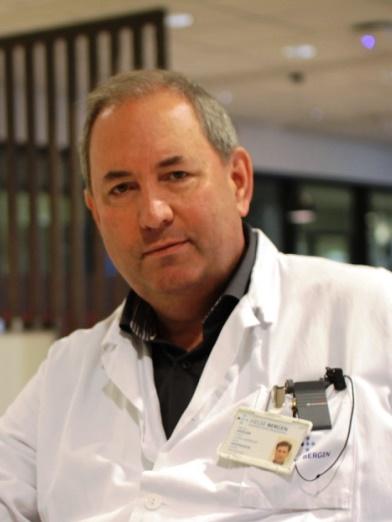INTPART-support for CCBIO-Harvard project
CCBIO applied for 4,5 million NOK over 3 years and has now been granted INTPART-funding from the Norwegian Research Council (RCN) and the Norwegian Centre for International Cooperation in Education (SIU).

Main content
SIU and RCN received 47 eligible applications. The CCBIO-Harvard project is one of 19 which will be supported. In all 4 of the 19 are UiB-projects, of which the CCBIO-Harvard project is the only from the Faculty of Medicine and Dentistry.
Cultivating more world-leading research groups in Norway
«SIU is pleased to have received very many high quality proposals. The partnerships that now have been granted funding through INTPART, facilitates a tight connection between education and research. The partnerships include PhD and Master students in collaboration with the very best research groups in their fields. Norwegian students will get the opportunity to be educated by researchers from the world's leading universities” says Gro Tjore, acting Director at SIU, in a press release.
Arvid Hallén, Director General of the Research Council of Norway, believes the INTPART programme “can become a very useful instrument for establishing and strengthening contacts between Norwegian and international research groups.”
“If we are to cultivate more world-leading research groups here in Norway,” Mr Hallén continues, “Norwegian researchers must seek experience abroad, and we need more international researchers to come here. Funding from the INTPART programme may be used to cover seminar expenses, summer courses and exchange stays, as well as the development of long-term research collaborations and joint study programmes and degrees designed to create sustainable ties between top-notch institutions here and abroad.”
“We are consolidating a number of funding types into one pot, to stimulate international partnerships. In this way we hope to see a comprehensible portfolio of sustainable and creative institutional partnerships, which may build on more than one research topic", says Hallén.
Cooperation between CCBIO and Harvard
The project “Bergen-Harvard Cancer Studies: A Partnership for Excellent Education and Research”, aims through a cooperation between CCBIO and two world class departments from the Harvard Medical School and Harvard Kennedy School, to establish a long term partnership where excellent education is to be fully embedded in excellent research.
Existing and new courses from CCBIO Research School will be developed to include lecturers from Harvard. All courses will be launched also on the Master level, ensuring full integration of students from the Medical Student Research Program and other Master level students.
All students with relevant backgrounds will be integrated into CCBIO’s and the partner’s ongoing research with academic publications as the final goal. A high degree of student and faculty mobility will be established. This will result in improved education and the development of new types of expertise into Norwegian academia, e.g. ELSA curricula into the professional training of research education of tomorrow’s cancer physicians, researchers and policy-makers. It will also result in deeper research collaboration, which in turn will improve the educational track of Norwegian Master students. The increased contact and mobility will also improve the PhD students’ possibilities of getting collaborators and relevant hosts for their stays abroad.
Preparing for more joint applications of research funding
CCBIO will establish several adjunct positions with staff from our partners, paving the way for more joint applications of research funding for PhDs and students to perform research and being co-authors on papers. We expect that such closer collaboration with our partners will result in CCBIO becoming an even more attractive partner for industry actors. ELSA collaboration is also foreseen to continue and expand on dissemination and training with national and international health policy environments, including the European Union and the Council of Europe, thus strengthening the impact of CCBIO research and education well beyond the university community.
